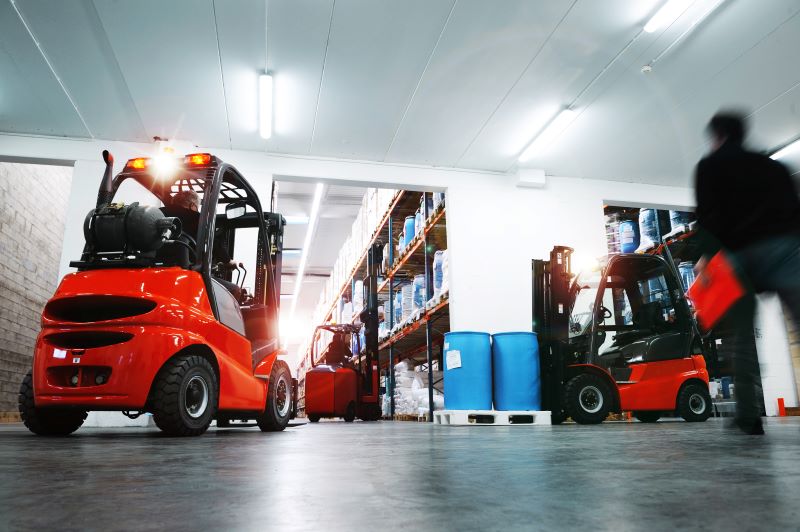Industry Dynamics
Agency workers: 3 steps for safer forklift operations
Counts:500 Time: 21-10-08 From: Suzhou Teknect Engineering Co., Ltd.Mentor FLT Training highlights employers’ duty of care to agency workers and advises how you can ensure they stay safe while operating on your site.
There will often be times when companies require short-term truck operators to join their workforce. Whether supporting during busy periods or staff shortages, the likes of which many companies have experienced this past year, temporary or agency workers are often called upon to supplement the workforce and boost efficiency.
But unless these new operators are made familiar with their equipment, site layout or daily tasks, you can significantly increase the risk of accidents, injuries and costly damage, and actually end up slowing productivity.
The Approved Code of Practice for Rider-Operated Lift Trucks (L117), emphasises that special risk management is required, and with good reason. Research shows workers are four times as likely to be involved in an accident during the first month of their employment than at any other time.
 All too often, we see reports of agency workers harmed in serious accidents involving workplace transport.
All too often, we see reports of agency workers harmed in serious accidents involving workplace transport.
Recently, a paper recycling company was fined £600,000 after a 20-year-old agency worker suffered fatal crush injuries while working at a plant in London. An investigation by the HSE revealed serious failings relating to operator competence and supervision that breached Section 3(1) of the Health and Safety at Work etc. Act 1974.
Considering the pressures of the last year, many organisations may feel an urgency to get new starters up and running as quickly as possible but, without the right training, this can have severe consequences.
Those companies who consider the time and investment in training for temporary and agency workers as wasteful or even optional, must think again.
Employers have the same legal responsibilities for agency workers as they do for all staff — and, by following three simple steps, can ensure that any new operator is capable and confident in their job.
Verify experience and qualifications
Any operator undergoing formal training should receive a certificate demonstrating that they have successfully completed basic training on the specified category of truck. When checking this documentation, look for courses accredited by the organisations that make up the Accrediting Bodies Association (ABA) to ensure the training carried out meets the standards set by the HSE. (For this reason, remember that certificates issued overseas do not necessarily qualify holders to safely operate trucks in the UK.) Take the time to check how recently the training took place and verify the details with the relevant training provider and accrediting body.
The next stage is to assess current operational skills. This will help gauge the standard of the operator and determine what training is required before they can safely begin using forklift trucks on your site. This can be carried out by external provider or in-house by a qualified, competent person.
Provide proper training
Just because a worker may not be a permanent member of your team, your duty of care still applies during the time they are with you, so there’s no justification for training them any less thoroughly than your full-time, employed staff.
Operators must be fully trained before using materials handling equipment on site, otherwise they are a danger to themselves and those around them and at heightened risk of causing accidents, disruptions and delays in productivity.
This must involve all three elements of forklift training (basic, job specific and familiarisation), and should be followed up with any additional supervision required, so that your new starters are safe to start work amongst their colleagues.
Keep written records of authorisation
Once all relevant training has been completed, employers must give operators written authorisation before they can use a truck – and this includes temporary and agency workers. With a real risk of serious injury (or worse) resulting from forklift accidents, there’s no good argument for putting an unqualified person in control.
To prevent unauthorised access to your trucks, ensure there is a robust, communicated system when it comes to handing out keys, or consider more tech-based solutions such as PIN keypads or programmable fobs. These not only make it far more difficult for unauthorised people to use a truck, but it also encourages individual employees to take greater responsibility for their own access credentials.
Whether an operator is with you for a day or a lifetime, your spend on their training will be minimal compared to the returns it can bring, which include:
- Improved productivity & less downtime – studies show that safe workers are more productive workers. Fewer accidents mean less time is lost due to clean up, aisle shutdown, or out of action equipment/personnel.
- Lower damage/repair costs – skilled operators protect your bottom line as less is spent on lost stock, truck and racking repairs, new pallets, etc.
- Legal compliance – providing sufficient training will help you meet your requirements and avoid the hefty fines, court costs, and compensation associated with accidents.
- Safer staff – most important of all, you will be protecting your workforce and making sure everyone gets home safe

 ENGLISH
ENGLISH  简体中文
简体中文